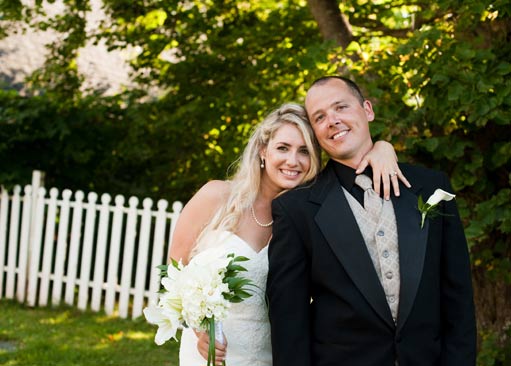當(dāng)前位置: Language Tips> 雙語新聞
Women who wait until their thirties to get married earn more money
分享到
|
 Waiting to settle down: A study has found that women who marry after 30 earn more than those who wed earlier, while the opposite is true for men |
|
A study has found that marrying later in life is financially beneficial for women, but not for men. The University of Virginia has published a report that college-educated women who wed in their thirties earn an average of 56 percent more than those who get married a decade earlier. Conversely, men who settle down in their twenties have higher incomes than those who wait until after 30, no matter their education. The National Marriage Project's study, entitled Knot Yet: The Benefits and Costs of Delayed Marriage in America, examines the consequences of marrying later, a growing trend in the US. It notes that the average age of marriage is at an all-time high of 27 for women and 29 for men, compared to 1990 when the averages were 23 for women and 26 for men. But while women have actually benefited financially from delayed marriages, men who wed earlier in life tend to be more successful later on. The study says that childbirth plays a role in these results. Around two-thirds of lifetime income growth takes place during the first ten years of a career, according to clinical psychologist Meg Jay. Since college-educated women who marry in their twenties also tend to have their first baby earlier, forcing them to take a break from their careers, they can take longer to climb the corporate ladder. But getting hitched at a younger age tends to be a good career move for men, perhaps because married men 'are more sure of themselves compared to single men,' leading to more productivity, suggests Business Insider. The study also found that while college-educated women profit from delayed marriage, those without a degree do not. In fact, among women who drop out of high school, 83 percent of first births are to unmarried mothers, according to The Atlantic. A woman without a college education therefore has less time to advance her career during its vital first decade. The graphs from the study also show that men who never marry earn significantly less than those who do, while the opposite is true for women. (Source: Dailymail) |
一項研究發(fā)現(xiàn),晚婚在財政上對女性有利,但對男性卻不利。 美國弗吉尼亞大學(xué)發(fā)布了一篇研究報告稱,受過大學(xué)教育的女性如果在三十多歲時結(jié)婚,收入平均比那些在二十多歲時就結(jié)婚的女性高出56%。 與此相反,二十多歲就結(jié)婚的男性比那些到三十歲后才結(jié)婚的男性收入更高,無論受教育程度如何。 美國國家婚姻項目的這一題為《尚未結(jié)婚:美國晚婚的益處和損失》的研究探查了晚婚的后果。在美國,晚婚趨勢日益增長。 研究指出,美國人平均結(jié)婚年齡達到了史上最高——女性27歲,男性29歲。相比之下,1990年的平均結(jié)婚年齡為女性23歲,男性26歲。 盡管女性確實能從晚婚中得到經(jīng)濟利益,但早婚的男性通常日后會更成功。 研究稱,生小孩是導(dǎo)致這些結(jié)果出現(xiàn)的原因之一。 臨床心理學(xué)家梅格?杰指出,人一生中約三分之二的收入增長是在職業(yè)生涯的頭十年發(fā)生的。 由于那些在二十多歲就結(jié)婚的受過大學(xué)教育的女性通常生第一個小孩的時間也更早,迫使她們暫時中斷事業(yè)發(fā)展,導(dǎo)致她們要等更長時間才能獲得晉升。 但是,早婚對于男性的事業(yè)發(fā)展卻是好事,美國知名科技博客Business Insider認為,這可能是因為已婚男人“相比單身男人對自己更有信心”,由此他們的工作效率也更高。 該研究還發(fā)現(xiàn),盡管受過大學(xué)教育的女性能從晚婚中獲利,但那些沒有大學(xué)學(xué)位的女性卻不能。 事實上,據(jù)《大西洋》雜志報道,那些高中就輟學(xué)的女性中,有83%是未婚生下第一個孩子。 因此,沒有受過大學(xué)教育的女性在職業(yè)生涯最關(guān)鍵的第一個十年就沒有那么多時間來發(fā)展自己的事業(yè)。 研究數(shù)據(jù)圖還表明,一生未婚的男性收入比那些結(jié)婚的男性要少得多,而女性則正好相反。 相關(guān)閱讀 (中國日報網(wǎng)英語點津 陳丹妮) |
上一篇 : 李克強總理首秀:自信堅定敢承擔(dān)
下一篇 : 研究:夜貓子收入更高
分享到
關(guān)注和訂閱

翻譯
關(guān)于我們 | 聯(lián)系方式 | 招聘信息
電話:8610-84883645
傳真:8610-84883500
Email: languagetips@chinadaily.com.cn